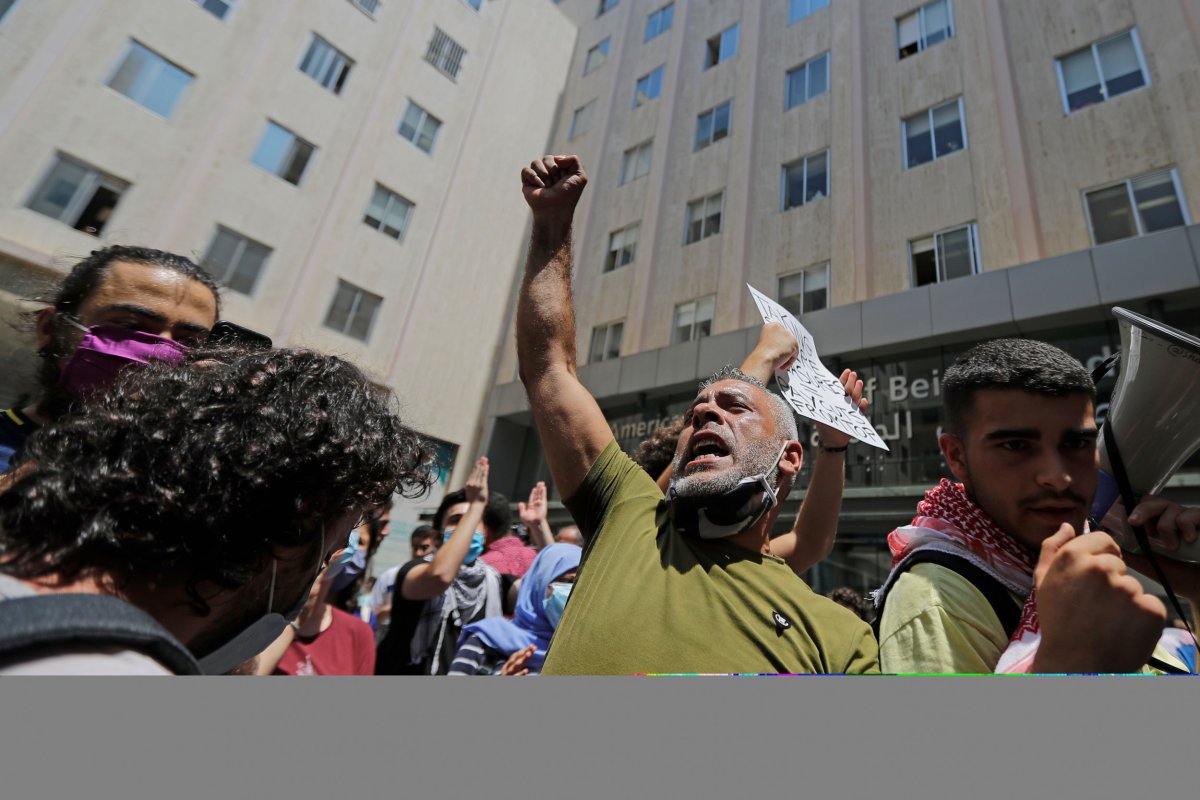Since 2006, successive U.S. administrations have squandered more than $2 billion in taxpayer dollars by sending it to the Lebanese Armed Forces (LAF), and have justified this to Americans by touting supposed victories against ISIS and Al Qaeda. While taxpayers from Boston to Birmingham have had their hard-earned American money sent to Beirut, Lebanon has become an Iranian client state via the Islamic Republic's terrorist proxy, Hezbollah.
It's time to be honest about Lebanon and end the policy of throwing good money after bad. Lebanon is failing and the LAF is compromised. The U.S. must pull back.
Today, Hezbollah controls the government, has built infrastructure among innocent civilians for the purpose of attacking Israel and maintains stockpiles of over 100,000 missiles. And yet not one dollar of the billions that have poured into Lebanon has been used to help disarm Hezbollah or roll back its malign influence. There is no doubt that in 2020, Hezbollah and its Iranian sponsors are the dominant force in Lebanon, and that the country is in an economic death spiral.
Sadly, one must come to the grim conclusion that the United States has, for years, propped up a military that essentially acts as a Hezbollah auxiliary.
Lebanese President and former head of the LAF General Michael Aoun has been described as a "staunch Hezbollah ally." Additionally, the current head of the LAF, General Joseph Aoun (no relation) is believed to have extensively coordinated with Hezbollah in the past, and continues to make threats against Israel. Hezbollah leader Hassan Nasrallah has not been shy either, describing the LAF as both a "partner" and a "pillar." And after the most recent tensions on the Lebanese-Israeli border, current Lebanese MP and former Foreign Minister Gebran Bassil stated, "we support Hezbollah in its confrontation with the Israeli enemy."
There are those who believe that walking away from the LAF would be a victory for Russia, but the reality is that Russia has already ingrained itself with the powers that be. At this point, current U.S. policy toward Lebanon is enabling an Iranian-backed and Russian-allied government, military and terrorist organization.
Russia has said very plainly that it views Hezbollah as a legitimate force. While Moscow is comfortable with terrorist allies, coordinating on strategy in Syria and bolstering Hezbollah's capabilities by creating joint operation rooms and providing the training and know-how of a first-tier fighting force, the U.S. is not. And we certainly shouldn't be footing even part of the bill.

In Israel, which faces a continued and direct threat from Hezbollah's unchecked armories, security officials have in recent years raised red flags about the level of coordination they see between the LAF and Hezbollah. Israel has made clear that it will not allow Iran and Hezbollah to develop an arsenal of precision-guided missiles (PGMs) within striking distance of its cities, as Hezbollah has repeatedly threatened to do in recent months.
Back in Washington, some in Congress have tried to leverage our assistance to counter Hezbollah and gain greater oversight. Others in the legislative and executive branches have made it an entrenched interest to propagate the status quo. To date, the latter forces have been winning.
A report from the Department of Defense on Hezbollah's influence over the LAF was required by the FY 2020 National Defense Authorization Act to be submitted to Congress in late June. It has yet to arrive. And just last week, House Republicans attempted to amend the FY 2021 state/foreign operations appropriations bill to push the LAF to take on Hezbollah, address the PGM crisis in Lebanon and respect human rights. All of these efforts were rebuffed by House Democrats.
Worst yet is the drastic watering down of the Countering Hezbollah in Lebanon Military Act of 2019, by House Foreign Affairs Committee leadership, of the bill's language conditioning 20 percent of the aid to the LAF on its rolling back of Hezbollah's influence and fulfilling "its obligation to disarm Hezbollah pursuant to U.N. Security Council Resolution 1701."
Instead, the bill asks for yet another report and another strategy for the completely failed United Nations Interim Force in Lebanon, a 10,000-member international force that merely does its utmost to document Iranian imports.
The United States can no longer afford to finance Hezbollah's auxiliary force just because bureaucratic momentum at the Pentagon, State Department or some quarters of Congress would prefer the status quo. The status quo has failed—and American policy and funding should reflect an approach that squarely addresses the Hezbollah cancer. The Trump administration should start by indefinitely suspending assistance to Hezbollah-controlled Lebanon.
Boris Zilberman is the director of public policy and strategy at the Christians United for Israel Action Fund.
The views expressed in this article are the writer's own.
Uncommon Knowledge
Newsweek is committed to challenging conventional wisdom and finding connections in the search for common ground.
Newsweek is committed to challenging conventional wisdom and finding connections in the search for common ground.
About the writer
To read how Newsweek uses AI as a newsroom tool, Click here.








